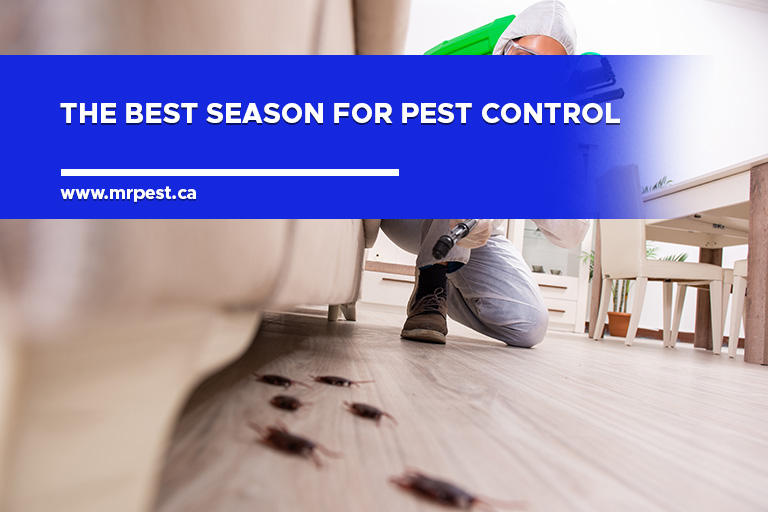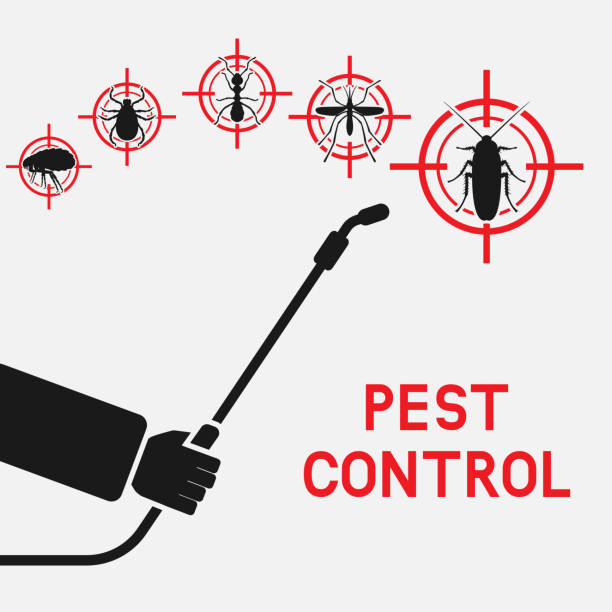Safe and Trustworthy Insect Control for Lasting Protection
The value of trusted and secure parasite control can not be overemphasized, specifically in an era where environmental problems are critical. Effective parasite management requires a complex method that balances environmental honesty with the requirement for reliable bug reductions. By checking out environmentally friendly solutions and incorporated parasite management strategies, homeowners can achieve long-term security versus intrusive varieties while guarding beneficial ecological communities. The nuances of these approaches may not be right away clear, prompting a more detailed assessment of the methods that can lead to sustainable pest control results. What steps can be taken to guarantee both safety and effectiveness in bug administration?
Comprehending Pest Control Methods
Parasite control encompasses a selection of approaches focused on managing and eradicating unwanted insects and rats that can intimidate both health and home. Understanding these approaches is crucial for reliable bug management.
The main categories of parasite control methods include mechanical, organic, and chemical techniques. Mechanical techniques entail physical barriers and catches to stop insect entrance and capture unwanted types. As an example, utilizing displays on home windows or using sticky catches can dramatically minimize bug populations without introducing dangerous materials.

Chemical bug control is typically one of the most recognized method, making use of pesticides to eliminate bugs. These chemicals can be effective however must be utilized with care to avoid unfavorable results on non-target species and the setting.
Benefits of Eco-Friendly Solutions
How can environmentally friendly options transform insect control methods? The adoption of eco-friendly parasite control approaches supplies numerous benefits, dramatically improving the efficiency and security of bug management.

An additional advantage is the favorable influence on local biodiversity. Green options are developed to target particular pests while maintaining valuable bugs and wildlife, advertising a balanced ecosystem. This strategy lines up with the expanding consumer need for lasting methods, enhancing the online reputation of parasite control service providers.
Integrated Parasite Administration Techniques
The implementation of eco-friendly solutions normally leads to the fostering of Integrated Pest Management (IPM) methods, which further improve pest control effectiveness. IPM is a holistic technique that incorporates several tactics to handle bug populations while reducing ecological impact. This approach stresses making use of organic, social, mechanical, and chemical controls, making sure a well balanced and sustainable method of bug management.
One fundamental element of IPM is the extensive assessment of insect activity and ecological problems. By keeping an eye on bug populations and identifying their life cycles, professionals can apply targeted treatments that disrupt the parasite's habitat or lifecycle, minimizing dependence on chemical pesticides. In addition, cultural techniques such as crop turning and environment manipulation can significantly reduce bug facility and reproduction.
An additional vital element is making use of organic control agents, such as Full Article beneficial insects or bacteria, which can naturally suppress pest populations. When chemical applications are essential, IPM focuses on the usage of low-risk pesticides and applies them selectively, minimizing exposure to non-target microorganisms and people.
Integrating IPM techniques not only boosts bug control efficiency but additionally advertises a much safer community, aligning with the expanding demand for sustainable techniques in bug administration.
Safe Practices for Homeowners
Recognizing the value of safe practices in parasite control can equip property owners to efficiently manage parasite problems while protecting their health and the setting. Carrying out non-toxic approaches and safety nets is important in lessening exposure to hazardous chemicals.
House owners must first assess their atmosphere for conditions that bring in insects, such as standing food, mess, and water waste. Consistently cleansing and securing entrance points can hinder insects from attacking the home. Using natural deterrents, such as important oils or diatomaceous planet, can give efficient alternatives to chemical pesticides.
When chemical treatments are required, homeowners should choose products that are especially classified as safe for household use. It is important to follow application standards meticulously to prevent too much exposure. Using targeted therapies in locations where parasites are identified, instead than blanket splashing, can considerably lower chemical usage.
Lastly, keeping open interaction with parasite control experts is crucial. House owners ought to ask about the safety and security of items utilized and demand green alternatives whenever possible. By adopting these safe techniques, house owners can produce a healthier living setting while successfully handling pest concerns.

Tips for Long-Term Security
Establishing a parasite administration technique that emphasizes lasting security can significantly boost the performance of the risk-free practices formerly gone over. To accomplish this, homeowners need to apply routine inspections of their building, concentrating on concealed areas such as attic rooms, basements, and crawl areas. Early discovery of insect task is important in protecting against invasions from holding.
These techniques decrease attractants that attract pests right into the home. Sealing entry factors, such as cracks around doors and windows, can successfully obstruct possible pest access.
Landscape design needs to also be thought about; wasp removal maintaining plants cut and maintaining a distance between plants and the home decreases concealing spots for bugs. Utilizing all-natural deterrents, such as necessary oils or diatomaceous earth, can even more inhibit problems without turning to severe chemicals.
Last but not least, collaborating with a specialist insect control solution for periodic examinations can provide an extra layer of security. These experts can supply customized suggestions and advanced treatments, ensuring that your home continues to be shielded versus bugs in the long-term.
Conclusion
Finally, reliable and secure bug control calls for a multifaceted approach that stresses eco-friendly approaches and integrated pest monitoring. By click now carrying out natural deterrents, performing routine inspections, and keeping proper hygiene, residential or commercial property proprietors can substantially decrease parasite populations while shielding useful insects and the atmosphere. Collaboration with specialist insect control solutions improves the efficiency of these strategies, making certain tailored remedies that supply enduring security and peace of mind versus future problems.
Effective parasite administration requires a complex method that stabilizes eco-friendly stability with the requirement for effective bug suppression. The adoption of eco-friendly bug control methods uses numerous advantages, considerably boosting the effectiveness and security of parasite administration.The execution of environmentally friendly remedies normally leads to the adoption of Integrated Insect Administration (IPM) approaches, which further boost parasite control efficacy. exterminator coquitlam. By checking insect populaces and recognizing their life cycles, practitioners can execute targeted interventions that interrupt the parasite's environment or lifecycle, reducing reliance on chemical pesticides.In conclusion, safe and trustworthy insect control calls for a multifaceted method that stresses environmentally friendly techniques and incorporated pest administration